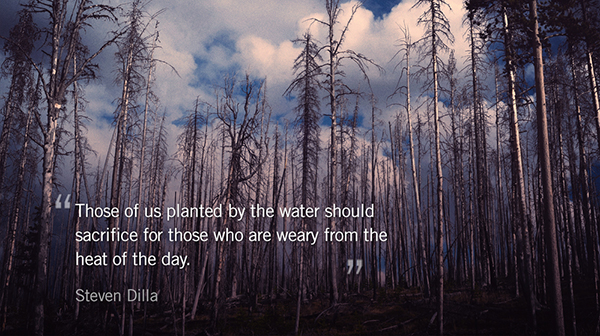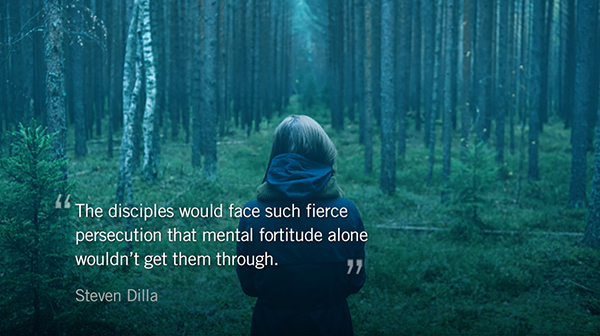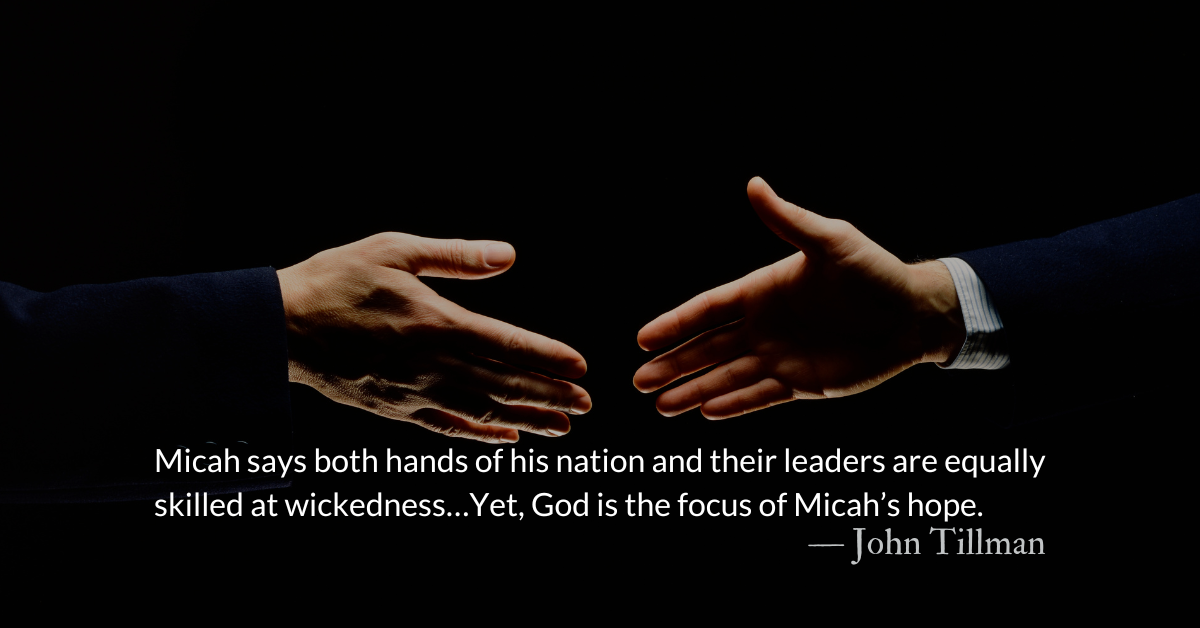
And now, Lord, look upon their threats and grant to your servants to continue to speak your word with all boldness. —Acts 4.29
I pray the safest prayers for the people closest to me. Praying risky things for myself seems slightly more natural: my prayer, my life, my risk. Sometimes I pray for strength and courage for a martyr I’ve read about, partially because I’m not sure how else to pray for them. Their faith is deeper than mine.
Then I get to my family and closest friends. I’m quite content praying for safety, comfort, instant healing, and a host of other luxuries. I just want things for them to be fine.
I’ve often gotten lost looking at the picture of Martin Luther King Jr. pulling a burnt cross out of his lawn. Hatred came to his home. Radical anger burned in his front yard. His young son stands next to him as he pulls the charred cross out of the lawn. Dr. King’s prayers and bold response to the gospel put his family at great risk. Every day.
Surely he meditated Acts 4. In the account, Peter and John have just been released from questioning. They have been threatened with jail — a threat with the subtext of beatings and possibly death — and yet they pray for boldness.
The easy thing for Peter and John would have been to have a prayer meeting about the government’s overreach and pray God would stop it. The comfortable thing would have been to pray for blessing and a new leader. But the Church’s growth would have stopped in that moment.
Like Dr. King, it was the disciples’ boldness, risk, and willingness to sacrifice for the sake of Christ that moved the gospel into the forefront of civic and social life.
Faith atrophies in the pseudo-comfort of modern life. Children who grow up without taking risks or engaging their beliefs against opposition, or friends who never work through hardship and forgiveness together, become intolerable. It is only in great difficulty that people discover the strength woven into them as image-bearers of God. Only when someone is overwhelmed do they look beyond their own strength to a God who loves and cares for them.
The hardest prayers are often the most loving prayers we can pray. They grow our trust in God, engage our faith in the complexity of the world, and challenge our communities to unite around the gospel. God grow our faith.
Today’s Readings
Joshua 24 (Listen – 5:49)
Acts 4 (Listen – 5:15)
This Weekend’s Readings
Saturday: Judges 1 (Listen – 5:08); Acts 5 (Listen – 6:49)
Sunday: Judges 2 (Listen – 3:19); Acts 6 (Listen – 2:35)










